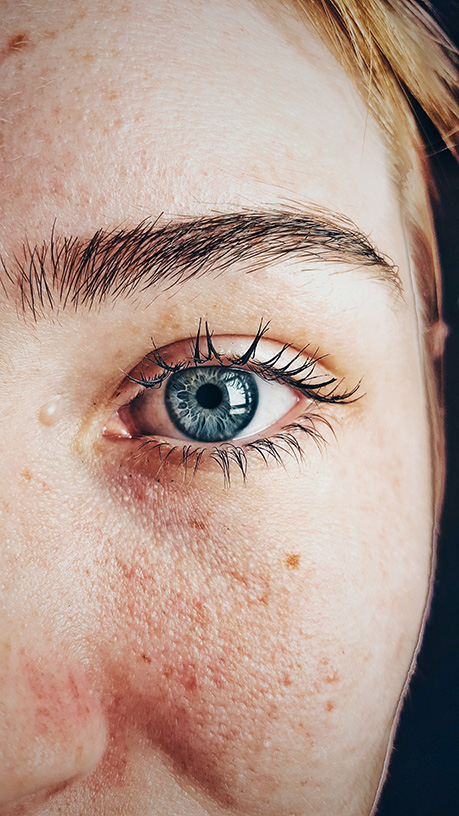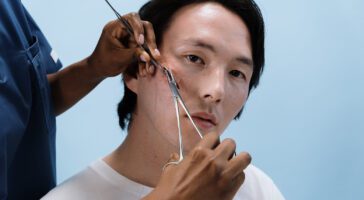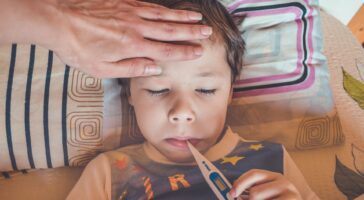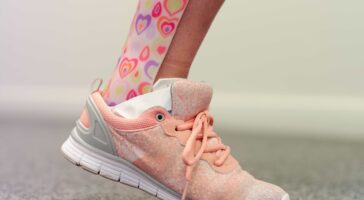Urgent Care
Diagnosis, treatment, and services for your everyday medical needs such as flu shots and lab work.
Jan 30, 2023

Out of all the different rashes and skin conditions that exist, Eczema is one of the most common that a child can have. As irritating as eczema may be, there are plenty of ways to avoid it and if your child does have it, there are plenty of ways of remedying the pain. So, look no further because Chai Care has you covered in all the ways to help your kid with their eczema!
Eczema is a skin problem called atopic dermatitis. Atopic dermatitis often begins in infancy, affecting about 15 to 20% of children. It usually improves as the child grows older and may resolve by school age or puberty, however, some children with atopic dermatitis may have more chronic diseases.
Children with eczema have a form of sensitive skin that may be more easily irritated by sweating, heat, rough clothing, some detergents, soaps, and cleansers. Children with atopic dermatitis may also have allergies to foods, animals, dust mites, tree pollens, and grasses, although it is not clear that these allergies cause eczema in most children. In many cases, identifying these allergies does not help eczema. In rare cases, some children with atopic dermatitis may develop allergies to chemicals in their moisturizers, skin care products, clothing, or topical medications.
Children with eczema develop red, dry, itchy patches on the skin that result from inflammation. Itching can be severe and constant, causing them much discomfort. With frequent scratching, the skin may develop blisters, oozing, crusting, or sores from the infection. Sometimes, if the child scratches for many weeks to months, the skin may start to become very rough, leathery, and darker in color. In infants, eczema commonly affects the face, scalp, arms, and legs and in older children, eczema may involve only the insides of the elbows and backs of the knees. It’s worth mentioning that some children with severe eczema may have it spread across their entire bodies.
Unfortunately, there is no cure for eczema, although it can usually be fixed with a good skincare routine. Frequent follow-ups with your healthcare provider are important so they can see whether the prescribed medicines are working. Your provider may need to adjust treatment during different seasons of the year, during flares, or as your child gets older. Outside of what your healthcare provider may recommend, there are plenty of at-home care options you can use to help your child without having to step foot inside a clinic.
For some children, limiting bathing to one to three times a week is helpful. Bathing more often can dry out the skin and actually make the itching worse. For children with environmental allergies such as pollens and animal dander, bathing more often, especially after contact with known allergens, may be helpful. When bathing, use warm water and a gentle, non-soap cleanser or Cetaphil cleanser. This should range from 5 to 10 minutes and when finished, pat the skin dry with a towel and lastly, apply topical medicines or moisturizers as instructed, right after bathing while the skin is still damp.
Your healthcare provider may prescribe topical steroids or other creams or ointments to treat your child’s eczema. When using this, apply a small amount of medicine to the affected areas up to two times a day as needed to keep eczema under control. It’s important to always apply the topical medication at least 30 minutes before applying moisturizer.
If your child’s eczema flares, you may need to use a stronger topical steroid for a short time. Use these steroids twice a day or as instructed by your healthcare provider on areas that have flared in place of your everyday steroids. Contact your provider if the areas are not any better after a week’s time. As your child’s eczema improves, you should be able to use the topical medication less often, ideally two to three times a week to keep your child’s skin clear. Make sure to not overuse or abuse the topical steroids because this may harm your child’s skin, causing stretch marks and spider veins.
When using a recommended moisturizer, apply a thick layer of cream 30 minutes after you use any topical medicines. This allows time for the medicine to be absorbed into the skin and the moisturizer will then seal in the medicine. Make sure to not use a cream that comes in a pump bottle, as these are usually lotions and won’t be effective.
It’s worth mentioning a few good moisturizers, but your healthcare provider may suggest something else. Creams that parents seem to champion are Cetaphil, Aquaphor, Vaseline, and Aveeno, just to name a couple.
Antihistamines are a type of allergy medicine that is used to decrease itching. They are most helpful when given before bedtime due to them making children sleepy. If you’re wondering what Antihistamines are, they are medicines such as Atarax and Benadryl. Some children with environmental allergies may also need to take a daily, non-sedating antihistamine such as Zyrtec, Claritin, or Allegra in the morning to control their allergy symptoms.
Wet dressings can be placed on the child after applying topical steroid medication. This makes the medication more effective by helping it penetrate deeper into the skin. You may also use an ace wrap or wet cotton pajamas, and after the nighttime dose of topical steroid application is applied, the child can then wear them to bed for an increased duration of treatment. They can also be worn after the application of moisturizing cream to lock moisture into the skin.
Follow-up visits are very important when it comes to eczema. Your healthcare provider will examine your child’s skin and monitor for side effects of steroid medication use and infections and may change the medications being used. It is important to follow their instructions and keep follow-up appointments to ensure maximum healing.
You should call your healthcare provider if your child develops open, oozing areas of skin that are painful or associated with a fever or if your child’s eczema worsens or does not improve with the use of prescribed medications.
Most infants and children with mild to moderate eczema can be managed by their primary healthcare provider as long as the treatment plan is followed and follow-up visits are made. Referral to an allergist or dermatologist is appropriate if certain foods or allergies are suspected, skin infections are frequent, or if your child is not responding to the treatment plan prescribed by the primary care provider after several follow-up visits and adjustments to the treatment plan have been made.
Truth be told, Eczema is not something to lose sleep over. Even though it may cause your child discomfort and in rare cases lead to a more serious skin condition, 9 out of 10 times it is nothing more than a seasonal rash that is easily treatable. Still, no parent enjoys watching their child suffer which is why the dedicated staff at Chai Care will always be here to supply your child with sensitive care!
* Legal disclaimer: The content of this article and the entire Chai Care blog is for educational purposes only; it does NOT constitute medical advice and must not be considered as such. Please consult a medical professional regarding any symptoms or health concerns you or your loved ones.

Nobody wants to spend hours sitting in a crowded emergency room, especially when you or your loved ones…

In today’s fast-paced world, time is a precious commodity, especially when it comes to healthcare. At Chai Care,…

Healthcare is the cornerstone of a thriving society, and at Chai Care, we firmly believe that it should…

In the fast-paced world of urgent care, every moment counts. When patients walk through our doors at Chai…

Major or small, we can all think back to a time when we cut, scraped, or grazed ourselves.…

Kids are bound to injure themselves at some point or another. Sometimes it’s a broken bone after taking…

There is no other way of saying it, but we all poop. It’s something every person does and…

Broken bones are no joke. Injuries like breaks and fractures can have long-term effects if gone untreated and…